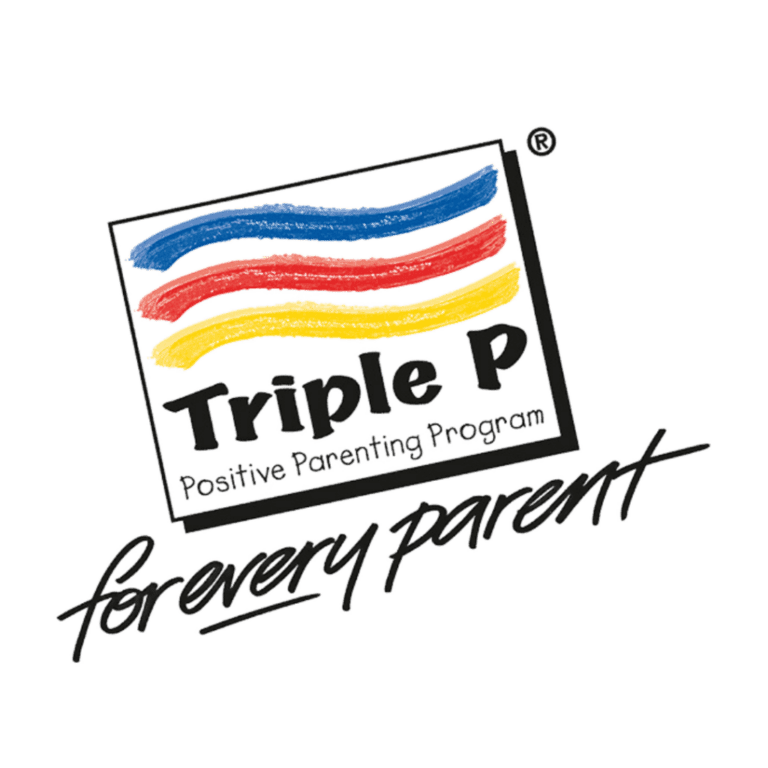How Do You Get Tested For Autism in California?
Takeaway: If you suspect that you or your child has autism, getting a professional evaluation is an important step toward receiving the support you need to thrive. But how do you get tested for autism in California? Our comprehensive guide offers a step-by-step breakdown that walks you through the process.
Navigating the path to an autism diagnosis can often feel overwhelming. Whether you’re a concerned parent noticing the first signs in your child, or an adult wondering about your own experiences, the prospect of seeking a diagnosis is fraught with uncertainties. Where do you begin? Who do you turn to? These questions, while daunting, are the first steps on a pivotal journey toward understanding and support. In California, the pathway to an autism diagnosis might seem complex, but understanding the right steps to take can significantly ease the process.
Autism Spectrum Disorder (ASD) is a neurodevelopmental condition characterized by a broad range of symptoms and levels of impairment. Individuals with autism may experience challenges with social interaction and communication and exhibit repetitive behaviors or fixed interests. However, the manifestation of autism can vary greatly from person to person, adding to the complexity of obtaining an accurate diagnosis. In California, like in many places, the process of getting tested for autism involves several steps, starting from the initial suspicion of ASD to receiving a formal diagnosis. This is further complicated by long waiting lists, the need for referrals, and the search for qualified healthcare professionals experienced in diagnosing autism spectrum disorders. Understanding these nuances is crucial for individuals and families looking to navigate this process effectively.
In this post, we aim to demystify the often complex process of obtaining an autism diagnosis in California. By providing a clear, step-by-step guide, we’ll cover everything from recognizing the initial signs of autism, to navigating the healthcare system, and finally, securing an official diagnosis. Our goal is to equip you with the knowledge and resources needed to streamline this daunting process, making it less overwhelming for both individuals suspecting they might be on the spectrum and parents observing early signs in their children.

Understanding autism spectrum disorder (ASD) diagnosis
Autism spectrum disorder is a neurodevelopmental condition characterized by challenges with social skills, repetitive behaviors, speech, and nonverbal communication, as well as unique strengths and differences. It covers a “spectrum” due to the wide variation in challenges and strengths each person with autism presents.
If you suspect that you or your child may be on the autism spectrum, it is instrumental to understand that an accurate diagnosis is the gateway to tailored support and interventions. Symptoms of ASD can include:
- Difficulty with social interaction and communication
- Restricted interests or repetitive behaviors
- Sensory sensitivities
It is important to note that for individuals with ASD, early diagnosis and intervention can vastly improve the outcome, so swift action is crucial.
Who can diagnose autism?
The ASD diagnostic process in California involves a multidisciplinary team whose primary function is to assess and understand the presenting symptoms to provide a formal diagnosis. Professionals who can diagnose autism include:
Developmental-Behavioral Pediatricians
These are pediatricians with additional training and specialization in the behavioral and developmental aspects of children’s health. They are particularly skilled in diagnosing and managing a wide range of developmental disorders, including ASD. Their comprehensive approach often includes evaluating the child’s developmental history, observing their behavior, and conducting physical examinations.
Child Psychiatrists or Adult Psychiatrists
Psychiatrists, whether they focus on children or adults, have the medical background to assess mental health conditions and can diagnose ASD. They consider both the mental and physical aspects of the disorder and can offer treatment and medication management as part of the intervention plan.
Clinical Psychologists
These experts in the field of psychology can administer the Autism Diagnostic Observation Schedule, Second Edition (ADOS-2) and Autism Diagnostic Interview-Revised (ADI-R) to diagnose autism. A licensed clinical psychologist can also understand cognitive development and how individual differences in behavior fit into various mental disorders. Their expertise is critical in identifying autism spectrum disorder accurately and providing guidance on the most effective treatment paths. If you are located near Pasadena, CA, schedule a FREE phone consultation with a psychologist here.
Neuropsychologists
Neuropsychologists specialize in understanding how brain structure and function affect behavior and cognition. They are adept at administering and interpreting psychological tests to assess cognitive abilities and deficits, which is essential in diagnosing autism. By evaluating the brain-behavior relationship, neuropsychologists can provide valuable insights into how autism impacts an individual’s learning, memory, and behavior, contributing to a comprehensive diagnostic assessment. Their expertise is especially beneficial in complex cases where comorbid conditions such as ADHD or learning disabilities may be present.
Neurologists
Neurologists focus on the diagnosis and treatment of disorders of the nervous system, which include the brain, spinal cord, and nerves. They have unique expertise in identifying neurological conditions and genetic disorders that might overlap with or mimic the symptoms of autism, such as epilepsy or neurogenetic disorders. By conducting neurological examinations and employing diagnostic tests like EEGs and MRIs, neurologists can uncover any underlying neurological issues that may be contributing to the presentation of autism spectrum disorder. Their involvement is crucial in cases where autism might have a specific neurological underpinning, ensuring that treatment plans are comprehensive and tailored to the individual’s needs.
Step-by-step guide to getting tested for autism in California
If you or your loved one are showing signs of autism, here are the general steps to take for evaluation and diagnosis.
Step 1: Recognizing the Signs
The first step in the diagnostic process is recognizing the signs and symptoms of autism, which can vary widely among individuals but often include difficulties with social communication, restricted interests, and repetitive behaviors. Early signs may be observed in children as young as two years old, such as developmental delays in speech development, lack of interest in playing with other children, or not responding to their names. In adults, symptoms like difficulties in social interactions, challenges in adapting to changes, or heightened sensitivity to sensory inputs can indicate autism. It’s important to note these symptoms and consider seeking a professional evaluation if they persist or impact daily functioning.
Step 2: Contacting Early Intervention Services
In California, individuals under the age of three who are suspected of having developmental delays or disorders, including autism, can access services through the Early Start program. Parents and caregivers can directly contact their local regional center to request an evaluation, which is provided at no cost. The regional center will then coordinate with you to perform a comprehensive developmental assessment to identify any areas of concern and determine eligibility for early intervention services. It’s a critical step that can lay the foundation for supporting the child’s developmental needs as early as possible.
Step 3: Seeking Referral to a Diagnostician
Seeking a referral to a diagnostician is a vital step in confirming an autism diagnosis. After observing signs of autism or other pervasive developmental disorders, or receiving preliminary assessments through early intervention services, individuals should consult with their primary healthcare provider. The provider can then make a referral to a specialist with expertise in diagnosing autism, such as a developmental pediatrician, neurologist, or psychologist. These professionals utilize standardized tools and comprehensive evaluations to diagnose autism, taking into account the wide range of symptoms and their impact on the individual’s daily life. It’s essential to choose a diagnostician who is experienced in assessing autism across different age groups and developmental levels to ensure a thorough and accurate diagnosis.
Step 4: Undergoing an Assessment
Undergoing an assessment for autism involves a series of evaluations conducted by a qualified professional. This comprehensive process may include interviews with the parents or guardians, observations of the individual in different settings, and the use of standardized diagnostic tools. One commonly used instrument is the Autism Diagnostic Observation Schedule, Second Edition (ADOS-2), which assesses communication, social interaction, and play or imaginative use of materials for children. For adults, an assessment can involve a review of developmental history and current functioning in various areas and may also include self-report questionnaires and an adult autism test such as the ADOS-2 or a semi-structured interview such as the MIGDAS-2. This thorough evaluation helps in establishing a diagnosis, understanding the individual’s strengths and challenges, and guiding the development of personalized intervention strategies.
Step 5: Receiving a Diagnosis
Receiving a diagnosis of autism spectrum disorder (ASD) marks a crucial step for both the individual and their family. It provides a framework for understanding the challenges faced and lays the foundation for seeking appropriate support and interventions. Following a diagnosis, families should expect to discuss the results and implications with the diagnosing professional. This conversation is an opportunity to ask questions, seek clarification on the findings, and understand the recommended next steps. It’s also a time to learn about the various resources, therapies, and support systems available. Initiating interventions and supports early can significantly improve outcomes, highlighting the importance of tailored strategies that cater to the individual’s unique needs and strengths.
Autism testing for different age groups
Although the diagnostic process is similar across age groups, the approach can vary considerably due to developmental stages and individual complexities.
Children
For children, the evaluation process emphasizes observation in social situations and communication skills. Because symptoms can evolve, periodic reevaluation is recommended. Testing in young children focuses on non-verbal cues, play interactions, and parental reports of developmental progress. This stage may involve a multidisciplinary team, including a pediatrician, a speech-language pathologist, an occupational therapist, and a psychologist, to capture a holistic view of the child’s abilities and challenges.
Teens
For teenagers, the diagnostic process may place a greater emphasis on social interaction and communication with peers. It’s common for assessments to include discussions about challenges in school, social relationships, and daily living skills. Mental health screenings for conditions such as anxiety, depression, and ADHD, which can co-occur with ASD, are also often part of the evaluation process for this age group. The goal is to provide a comprehensive understanding of the teen’s experiences and areas of need, to tailor support and interventions accordingly.
Adults
For adults, the process of autism testing might necessitate a more nuanced approach, taking into consideration the person’s life history, employment, independent living skills, and social relationships. It often involves a detailed discussion about the individual’s challenges and strengths across various settings and stages of their life. The assessment may also include evaluations by psychologists or psychiatrists familiar with adult presentations of autism, focusing on identifying characteristics that align with ASD criteria while differentiating from other conditions with similar presentations. The goal is to provide insights that can aid in accessing support and services tailored to the individual’s needs, enhancing their quality of life and ability to participate fully in society.
Resources & support for autism in California
Securing a diagnosis is only the beginning. The real work begins once you have the tools and resources to support the individual with autism and their family. Various resources and supports exist in California, such as:
California Regional Centers
California Regional Centers are a network of 21 privately operated, nonprofit organizations that are funded by the state to provide support services for individuals with developmental disabilities, including autism. They serve as a pivotal first point of contact for families seeking to access services ranging from early intervention for children to lifelong support for adults. Each center works to coordinate and provide services tailored to meet the unique needs of individuals with developmental disabilities, ensuring they can achieve their highest potential and quality of life.
School-Based Services
In California, children and young adults with autism can also benefit from specialized services provided directly through the school system. Under the Individuals with Disabilities Education Act (IDEA), students are entitled to receive a free appropriate public education (FAPE) in the least restrictive environment possible. This includes access to individualized education programs (IEP), tailored to meet the specific educational needs of a student with a disability. Schools may offer various support services, including but not limited to, speech therapy, occupational therapy, and behavioral therapy, all designed to enhance the educational experience and outcomes for students with autism. If your child requires ABA therapy to access special education, you may be able to obtain educationally related applied behavior analysis (ABA) therapy from your child’s school district. However, there are restrictions on receiving and funding ABA therapy through the school district. Engaging with these school-based services early on can contribute significantly to the child’s developmental progress and overall success in the educational setting.
Support Groups and Advocacy Organizations
Support groups and advocacy organizations play a crucial role in providing emotional support, resources, and information for families affected by autism. These groups offer a platform for families and individuals with autism to connect, share experiences, and learn from one another. They can also serve as a powerful voice for the autism community, advocating for rights, inclusion, and access to quality services and support at the local, state, and national levels. Many of these organizations conduct awareness campaigns, offer educational workshops, and provide guidance on navigating the various services available to individuals with autism and their families. These support networks are invaluable in fostering a sense of community and belonging, and in empowering individuals with autism and their families to advocate for their needs and rights.
Some are listed below:
- Autism Speaks (https://www.autismspeaks.org/)
- The Autism Society of America (https://autismsociety.org/)
- The American Autism Association (https://www.myautism.org/)
- The Arc (https://thearc.org/)
- Autistic Self Advocacy Network (ASAN) (https://autisticadvocacy.org/)
- The Council for Exceptional Children (CEC) (https://exceptionalchildren.org/)
These organizations are just a few examples of the numerous support groups and advocacy organizations available to individuals with autism and their families. They offer a range of resources
Connect with local and state-wide advocacy groups and support networks for information, encouragement, and to find community.
Huntington Psychological Services
Located in Pasadena, CA, Huntington Psychological Services is a leading provider of support and care for individuals with autism and their families. Specializing in evidence-based approaches, our team of experienced professionals is dedicated to enhancing the well-being and development of those on the autism spectrum. We specialize in comprehensive diagnostic evaluations for autism spectrum disorder. Our aim is to empower individuals with autism to achieve their full potential while providing families with the resources and understanding they need to support their loved ones. Schedule a FREE consultation to learn more about how we can assist you and your family.
To schedule a FREE consultation, click here








